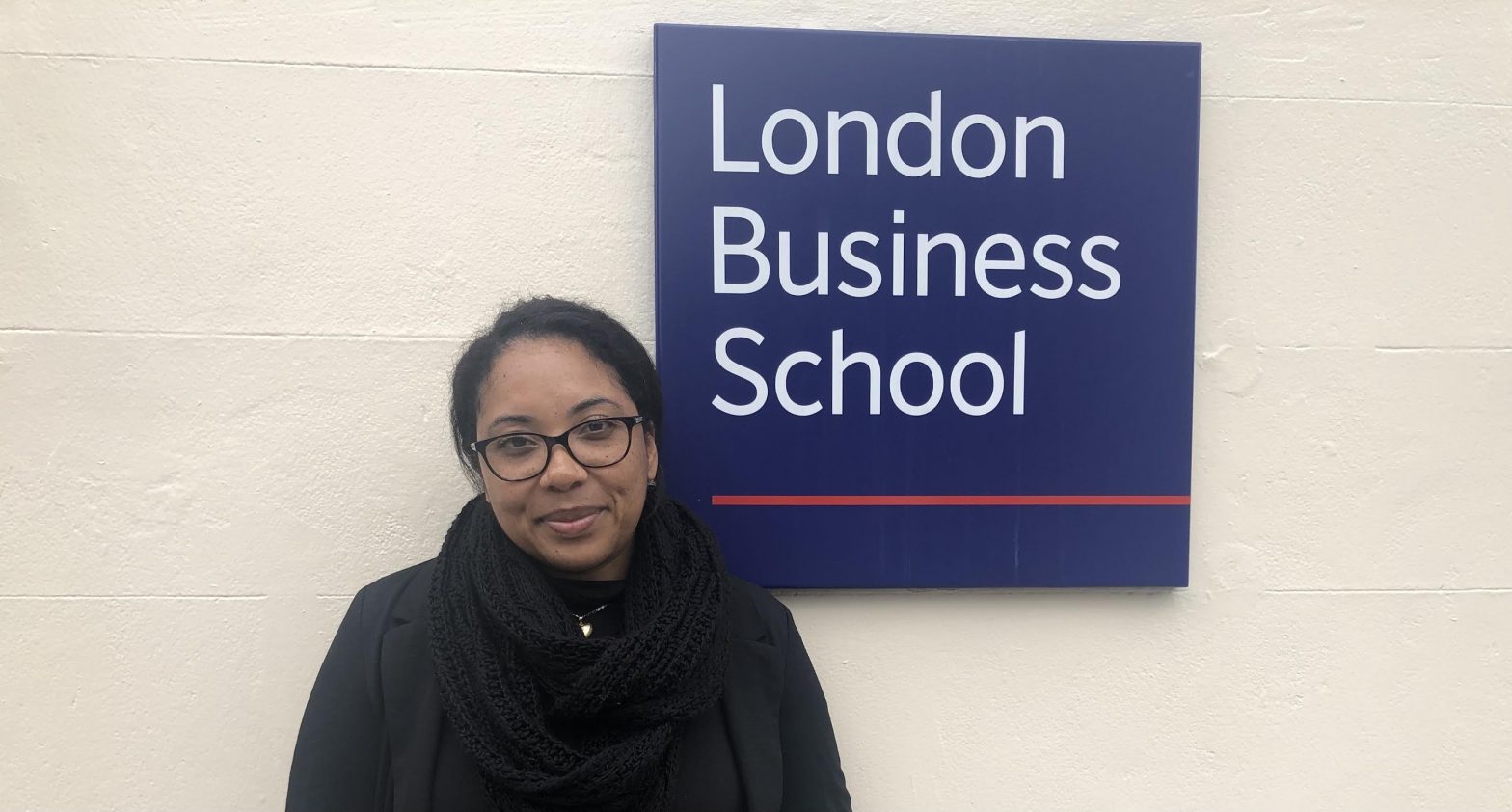Alissa Del Toro studies at London Business School as an MBA 2023 candidate and graduated from Cornell University with a biomedical engineering degree. During the pandemic, she met the startup founders of Karis Digital and joined the founding team in Berlin at a health tech incubator Vision Health Pioneers to build a virtual reality game for the treatment of ADHD symptoms in adults. Her hope, as well as the goal of Karis Digital, is to capitalize on innovation in a way that allows for better, more impactful and more sustainable ways to educate and improve people’s quality of life — mentally and physically. From her Berlin experience, Alissa recognized the need for a more global understanding of how socioeconomic factors affect our communities to develop stronger business solutions in tech. And because of this, she moved to London to attend business school and grow in the impact space.
Below, in a lightly edited transcript, Alissa shares her story.
What prompted you to move to Europe?
I was living my best life in product management when the pandemic hit, and I had all these plans to move to Colorado. I was working remotely and had the idea of building a sprinter van, then traveling. In my studio apartment in Brooklyn, I tried to make sense of what’s next for me. With all the George Floyd events, I felt impacted as a half Black and half Puerto Rican person. Also, I’m in the LGBTQ community. I was tired and wanted to make a bigger impact in the startup landscape.
During the pandemic, I’m thankful enough to have therapy, but it’s a cultural stigma in both of my cultures. I’m tired of it being a societal issue, and I want to reduce that. You shouldn’t have to be worried about sharing your mental health struggles.
Why did you choose London Business School?
For business school, I wanted to put on the investor hat but had no idea of what happens when it comes to financials or running a business. If you asked me when I first started applying to business school if it was an escape tactic, yes. I’m tired of being that token student for a diversity program, so I decided to choose a school in Europe. In making the decision to go to business school, I had a couple of reasons. First, I’ve been in the U.S. technology industry for almost eight years, and I have a good understanding of how to bring technology to the market. I have no idea of bringing a product to market in other markets outside of the U.S. That’s especially important since my passion is mental health and the healthcare industry, which is a global issue. I picked London because I wanted to understand what’s happening outside of the U.S. but bring that home.
How has your experience as a teacher informed entrepreneurship?
As a 22-year-old out of college, I was passionate about supporting and nurturing others. I thought teaching was the move because I loved working with students, so I taught algebra to ninth graders in Miami. But that wasn’t a good idea after seeing the trauma that comes into play when teaching students. You can’t easily correct the trauma in the classroom.
I continued my career in technology because I did engineering at Cornell University. Prior to business school, I worked at Healthify in New York City, which helps underserved populations. I wanted to help people in the health industry, but I couldn’t help it in the same way that I wanted to do it as a teacher.
What have you learned from the 2021 Blueprint Investor Track?
Mentorship from someone who looks like me and who has an understanding of where I’m coming from is highly important. It’s needed in an industry such as venture capital, where it’s hard to get in. You need that one person who’s going to advocate for you.
When you think about the percentage of minorities in the venture capital industry, there are few of them. Let alone ask some of these venture capitalists to give their time. There’s also the community, especially when you’re somebody who’s the oddball in an industry. I’ve made a couple of friends, whom I consider accountability buddies because we spend a few of our sessions grinding out an introduction to venture capital.
People have quoted the percentage of women that venture capital invests in, and it’s so low that it’s not even funny. I had a conversation with my Blueprint Investor Track mentor and thought that I’d like to make a social impact, especially as a person of color. But I must recognize ways to push diversity in settings. My goal is to get into whatever venture that is related to the health vertical that I’m really interested in but push for change as me being that person.
Blueprint shattered my imposter syndrome on the first day of the program. They were such good hype men and women. Quickly in the switch, I went from no I can do this, to yes, I can!
Written by our head of content Anne Wen. Reach her at annewen@dormroomfund.com. For more, read our Twitter, Medium, and newsletter. Founders, apply for an investment from us. 🚀
